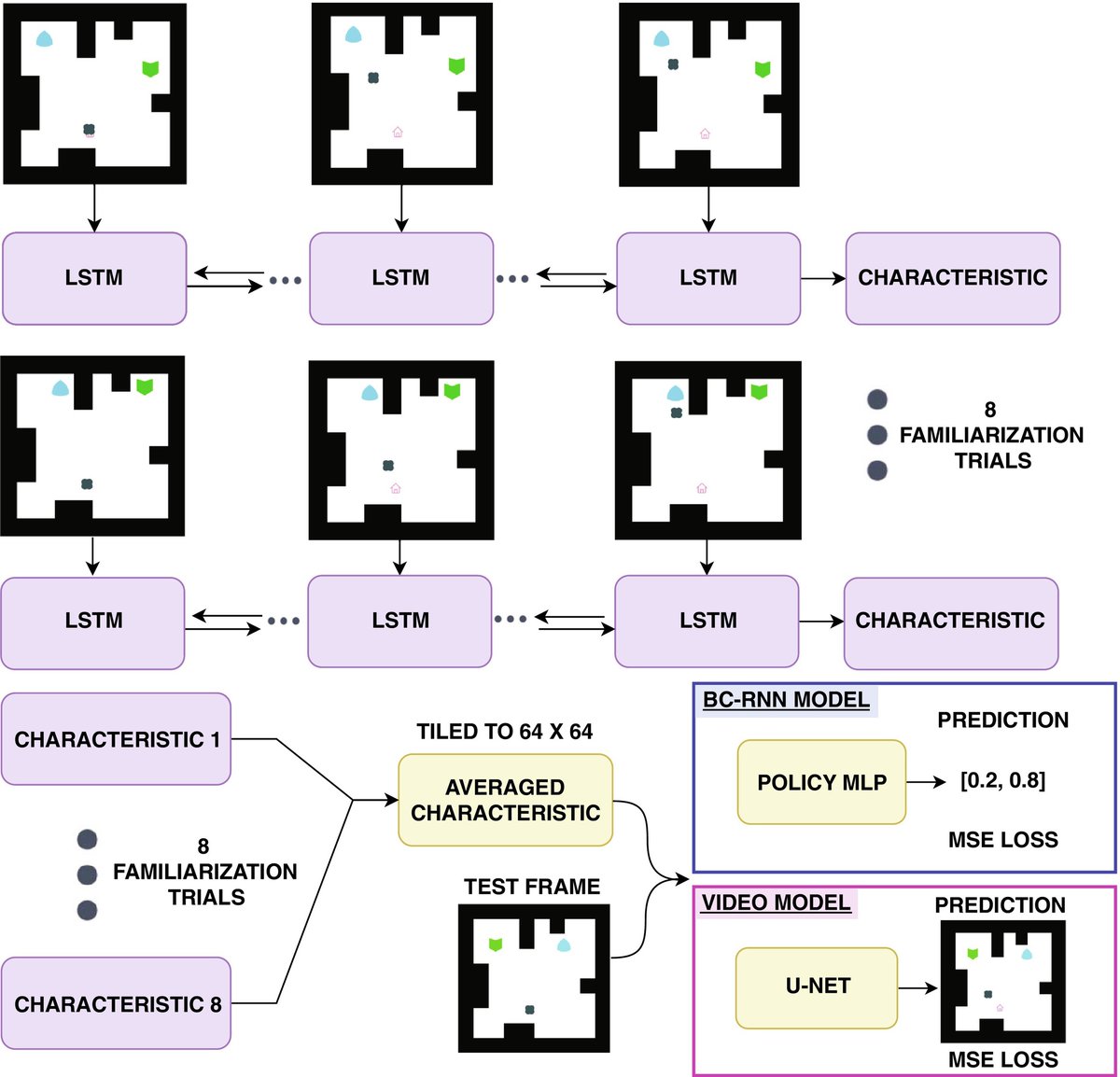
📜Paper published!📜 "Commonsense psychology in human infants and machines" in #Cognition #OpenAccess with Gala Stojnić, @gandhikanishk, @ShannonYasuda, and @LakeBrenden 👶🤖 sciencedirect.com/science/articl…
Human infants 👶 have a constellation of rich and flexible predictions about what motivates people’s actions, a "commonsense psychology." These predictions are typically missing from machine-learning algorithms, leading to AI 🤖 that lacks flexibility to new social situations.
For AI to look like human intelligence, machines might need to start from the same core abilities as infants. But infants’ commonsense psychology has not yet been evaluated in a framework that could be directly tested against machines’—let alone built into them.
So here we tested 11-month-old infants and learning-driven neural-network models on the “Baby Intuitions Benchmark (BIB),” a suite of tasks challenging both infants and machines to make high-level predictions about the underlying causes of agents’ actions. kanishkgandhi.com/bib
BIB: evaluates an observer's predictions about goal- rationality-, and instrumentality-attribution; uses a "violation-of-expectation" paradigm; and is presented in a procedurally generated and minimal grid world, challenging the abstraction of an observer's knowledge. 

With ~300 Zoom sessions, we tested infants on all six of BIB's tasks and found that they expected agents’ actions to be directed towards objects, not locations, and that they demonstrated default expectations about agents’ rationally efficient actions towards goals.
The models used two approaches, behavioral cloning and video modeling, and their architectures, inspired by ToMnet, were designed to form mental states based on observed behavior, i.e., to have "Machine Theory of Mind." However, the models failed to capture infants' performance. 



Our directly comparing infant and machine intelligence allows us to specify what principles of commonsense psychology are present in infants yet missing in machines, thereby inspiring new directions in the future of human-like AI.
Our work also shows that interanimating research between developmental cognitive science and AI is possible, generative for both fields, and provides a first step in testing whether knowledge can be built from the foundations that cognitive and developmental theories postulate.
Thanks to @NSF and @DARPA for supporting our work. Thanks also to the very generous families who volunteered their time to participate in our study! All of our materials are publicly available on the @OSFramework. osf.io/htjc2/
• • •
Missing some Tweet in this thread? You can try to
force a refresh




